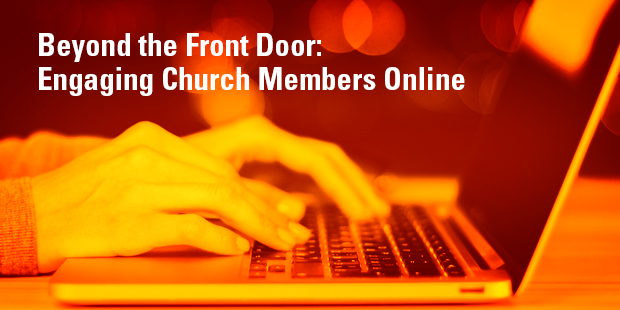
Beyond the Front Door: Engaging Church Members Online
As we’ve stated countless times at ThomRainer.com, your church’s website is the front door to your church. I’ve written about why your website needs to be guest friendly, but I haven’t written much about how it should interface with your members.
Needless to say, your church’s website should serve your members as well.
The problem is that too many church websites don’t. Some churches put so much effort into guest information, that they overlook information and features that would appeal to members and have them use the site more. These are the seven most common reasons church members don’t use your church’s website:
- You don’t have a church calendar. Almost every church management software includes a church calendar in its functionality. You can embed it on your website or use another calendar tool to keep event information in front of your members. Google Calendar or a calendar plugin on your website are the most common alternate methods churches use to place event information and schedules online.
- You’re not using social media well. Your members are the ones who are most likely to engage with your church on social media. If you’re not using social media well, you’re not going to engage your members well. When you provide sharable content on social media, you will draw members and guests alike to your church’s website.
- You don’t provide media to consume. Church members miss services from time to time. Many want to catch up on what they missed. Therefore, if you don’t have sermon videos or sermon podcasts on your church’s site, they can’t watch or listen to what they miss. A full media offering will draw more members to your website, and is a great resource for guests wanting to get to know more about your church.
- You don’t have online giving or online registration. Both of these tools allow members to make easy payments on your site. Obviously, online giving is much more than a payment, but if you don’t offer it, that is just one fewer reason for members to visit your site. Online registration for upcoming events and the ability to pay for any associated costs is also simple to install and helpful to members.
- You don’t publicize your church website. When you have information, event registration, and church-related media on your website, it will lead you to talk more about it. If every event you host requires (or strongly encourages) online registration, your church members will use your website more than if the event registration is a clipboard in the fellowship hall.
- You don’t have a church website. There is really no excuse here. A Facebook page is not a substitute for a website.
- You don’t have analytics or stats to know if church members are using the site or not. If you don’t have data about what pages are being accessed on your site, you’ll never know who’s using it or what they’re using it for. You’ve got to have data to make informed decisions about what to emphasize.
Do your church members use your church’s website more or less than you would want? What would you add to this list?
Learn more about the effective use of your church website: Connect with an Auxano Navigator today.

Tags: Church Communication, Jonathan Howe, church website, church websites











